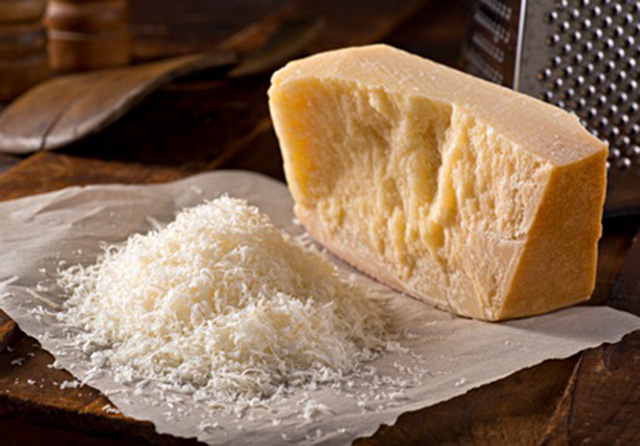Parmesan is a cheese made from skimmed cow’s milk. It is one of the greatest staples in Italian cuisine, and is often added to pastas, pizza and salads to enhance flavor.
Do you know what may be lurking in your store-bought Parmesan cheese? Is your Parmesan cheese actually wood pulp?
Unfortunately there are companies out there who are lying about what is in their products. The FDA recently released a warning stating that products labeled “100 percent Parmesan” may actually contain cheese substitutes and fillers like wood.
Companies like Castle Cheese Inc. have been making Parmesan products without any real cheese for decades.
These companies add too much cellulose, which is an anti-clumping compound made from wood pulp. Some companies also use cheaper cheeses like cheddar in their Parmesan products.
Michelle Myrter, the president of Castle Cheese Inc. is expected to plead guilty soon for criminal charges. The sentence would include 1 year in prison and a $100,000 fine.
TIME reports that Neil Schuman, who runs the largest seller of Italian cheeses Arthur Schuman Inc, believes that about 20 percent of these types of cheese mislabeled, which is a huge margin.
Cellulose is considered a safe additive, when used in appropriate amounts. According to Dean Sommer, a scientist Center for Dairy Research in Madison, Wisconsin, safe levels no more than 4 percent.
According to Bloomberg, Essential Everyday 100% Grated Parmesan Cheese, from Jewel-Osco, contained 8.8 percent cellulose. Wal-Mart brand Parmesan tested at 7.8 percent cellulose. Whole Foods brand tested at 0.3 percent, while Kraft had 3.8 percent.
Note: None of the information in our website is intended to diagnose, treat, cure or prevent any illness or disease. The content on our website is for educational purposes only.
DON’T FORGET to sign up for our weekly newsletter to get our latest articles, updates, free recipes and giveaways.
The truth behind the teas your are drinking.
Does your coffee contain dangerous toxins?
Go organic: Kale in California contains illegal pesticides.
REFERENCES:
1. “FDA Warns The Parmesan You Eat May Be Wood Pulp.” Time. Time, n.d. Web. 22 Feb. 2016.
2. “The Parmesan Cheese You Sprinkle on Your Penne Could Be Wood.” Bloomberg.com. Bloomberg, n.d. Web. 22 Feb. 2016.
3. “Castle Cheese, Inc. 7/11/13.” FDA.gov. N.p., n.d. Web. 22 Feb. 2016.

















